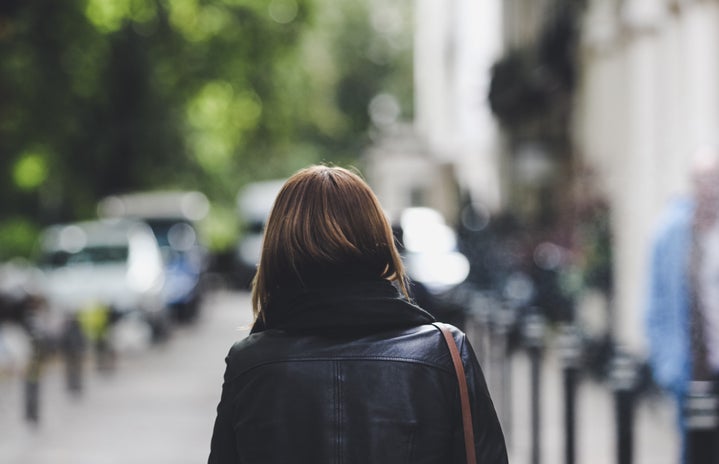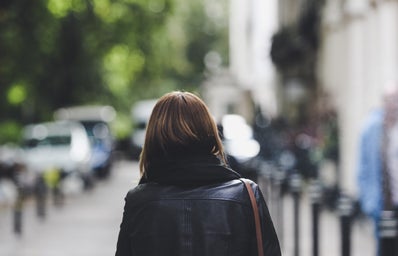The 12th of April marked the beginning of the slow and steady start of the Government’s plans to return the nation back to somewhat of a recognisable and functioning state. Pubs, restaurants, and cafes have opened, albeit outdoors, which means we can begin to enjoy some of the frivolities in life once again – wrapped up in layers under half working heaters, of course.
But if we are to take a minute to reflect over the past year, what would we take from it?
Much of the conversations I’ve had with people over the past few weeks have centred around this idea of a return to ‘normalcy’. Everyone is excited to get back into normal life. Don’t get me wrong, I can’t wait to exercise my right to sit outdoors and consume my gin and tonic in a woolly hat and gloves, but how much will we actually return to the way things were way back in early 2020 when this whole thing started?
Life pre-covid feels like an eternity ago, and I certainly feel like I’ve changed an awful lot over the ensuing lockdowns. I don’t know about you, but the thought of being in an enclosed space with more than six people seems pretty daunting. Even socialising in a group is proving to completely drain my social battery and make me question how I was ever a functioning member of society in the first place. Although it’s such a blessing to see friends and be allowed to leave our houses more than once a day for a Boris walk, I hope we can take some of the things we cultivated over the past year and implement them into our new ‘normal’.
Since the slowing down of life last March, the way I lived my life, and I’m sure many others, drastically changed. Going from a university student always on the go, I regressed back to my parents’ home, only leaving the house to do the food shop (if I was lucky!). Rather than being entertained by constantly being with friends and socialising, I was forced to find new ways of passing the time. Appreciating the lack of busyness and relaxed structure of the days felt like a much-needed change, something I’ve realised is so important in everyday life.
The increased amount of time also allowed us to reconnect with loved ones or get back in contact with that old school friend you’d been meaning to message for months. It made time for the attention to be taken off of ourselves and to turn our eyes towards those around us. Over the first lockdown, the street where I live set up a group WhatsApp in case anyone needed anything and wasn’t able to get out, and just to share encouragements. That sense of unity and community is something we need at all times, not just in a pandemic, and it has reminded me to value those who are willing to take time to seek ways to serve others and inspire me to do the same. This slow pace of life with no rushing and hustling is something I hope is carried forward. To have the rush so suddenly eliminated was refreshing and taking time with minimal deadlines to meet and goals to reach felt like an essential break from the stress of life.
With this came being kind to ourselves. Recognising that what we, as a community, were going through was an extremely difficult time, traumatic for some and that it required us to be forgiving, not put pressure on ourselves and take time to process what was happening. This is definitely something we should be doing whether we’re in a global pandemic or not, but the periods of prolonged isolation have pushed the importance of starting the conversation about mental health to the forefront. Checking in on your friends and being soft-hearted to those around us has been so crucial over the past year and should continue to be the standard.
The slowing down of life has also given space to interrogate our own society and ourselves. To recognise the need to help others, that there’s a crisis on our own front doorstep that we can play a part in ending, and also recognising the ways in which we are participants in oppression that perpetuates social ills. We shouldn’t be aware of these injustices simply because of the quietness the pandemic caused. Let’s make donating to food banks and charities to support the disenfranchised a standard and not an exception.
I’ve also really seen the value of the ability to say no and respecting other people’s boundaries. Pre-lockdown, many of us will have gone along to things that perhaps, ideally, we would have passed off if we could think of an appropriate excuse. But now we’ve come to understand that not everyone will be comfortable meeting in groups or going out – even if the guidelines allow it – and that saying no is okay. There’s no ‘right’ way to feel in regards to restrictions lifting and going forward we can’t always assume people are the same as they were 12 months ago. Heightened anxiety is so normal in this situation, especially when going through such a huge change, and I’ve noticed that everyone is generally more accommodating of this – we shouldn’t feel a pressure to conform just because others seem to be thriving in the return to normalcy.
As a society, we have been well and truly shaken by the pandemic. With the veil of business torn violently away from us, it has revealed the cracks in society and our own lives, and although it’s exciting the think of the freedom we (hopefully) will be enjoying in a couple of months, we can’t forget what the past year has taught us. There have to be some positives to come out of the pandemic, and if we can implement them and carry them forward, our communities and our minds will thank us.


